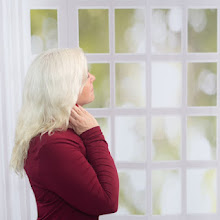The problem is it got my attention as well. You see, I love sweets! And the holidays is the Woodstock or Coachella of baked goods. They are everywhere and I love it! It is not just the taste but the way I feel afterwards. I feel calm and happy.
Anyone who has ever tried a low-carbohydrate diet know that the first few days or weeks are difficult.
You miss the soothing effect of carbohydrates. This may be especially challenging if you suffer from depression. But carbohydrates are a macronutrient that provides energy, prevent disease, and keep you satiated. Many weight loss clinics start their clinics on low-carbohydrate diets but then slowly add back carbohydrates as time goes on.
The problem, though, isn't the carbohydrates but the amount of sugar usually used in the baked goods I often eat. The sugar initially causes a high. My dopamine levels increase and I feel good. But the high doesn't last forever and I find myself looking for more. My next fix.
Dr. Thomas Rutledge, Ph.D. discusses the reason for this.
"Two happiness-stealing chemical consequences emerge:
1) the transient dopamine activity is followed by hormone responses that perpetuate cravings and negative emotions over time; and
2) the more we rely on dopamine to feel good and escape feeling bad, the less we are able to produce serotonin. Because serotonin is the neurotransmitter responsible for feelings of contentment, confidence, and satisfaction (e.g., antidepressants and psychedelics both increase serotonin activity in the brain, for example), this is a disastrous tradeoff."
The funny thing is that I don't remember this being a problem when I was growing up or as a young adult. I was able to eat a few baked goods and then walk away. So, thinking back, what was different?
- My family used much less sugar in baked goods than the store-bought version or many recipes recommend.
- I kept active; often walking or exercising even on Christmas itself.
- I did not eat sweets on an empty stomach. Sweets were a dessert to be eaten after a healthy dinner, not in lieu of it. (Not that I would ever do that!)
- I participated in other activities that helped me feel good such as visiting with others, watching Christmas movies, playing games. I find that as I get older, I seem to have a lot more to do and often wait to sit down when I am overtired.
- My metabolism was faster.
The good news is that I can still do these things. There are many recipes out there that use healthy ingredients and less sugar (and still taste good- thank goodness). And there are other things I can do besides eat at the holidays. The one thing that helps me as well is to know my trigger foods. There are some desserts I know I just can't keep in the house. I can do this!
Have a healthy and happy holiday season!






Comments
Post a Comment